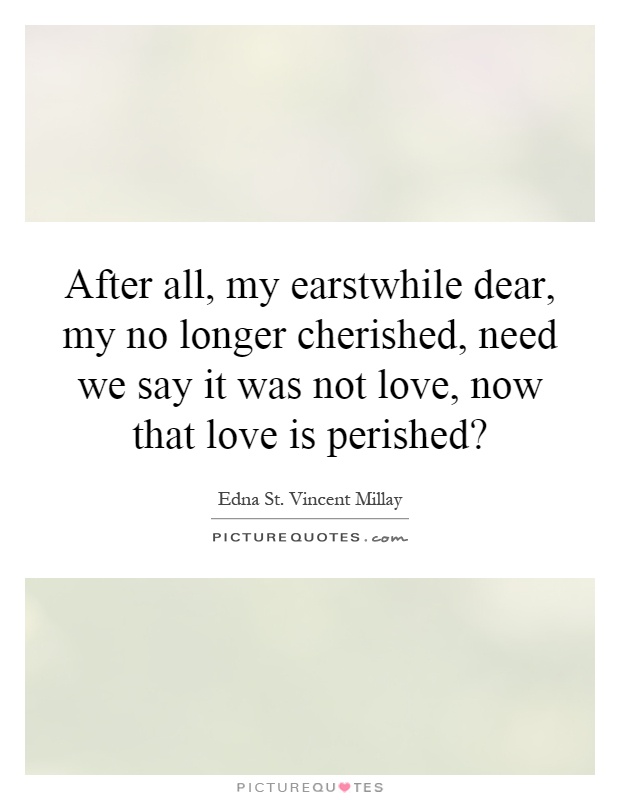After all, my earstwhile dear, my no longer cherished, need we say it was not love, now that love is perished?

After all, my earstwhile dear, my no longer cherished, need we say it was not love, now that love is perished?
Edna St. Vincent Millay was a poet known for her poignant and evocative verses that often explored themes of love, loss, and longing. In the line, “After all, my erstwhile dear, my no longer cherished, need we say it was not love, now that love is perished?” Millay captures the bittersweet essence of a relationship that has come to an end.The use of the word “erstwhile” in the opening of the line suggests a sense of nostalgia and longing for a past love that is no longer present. The speaker addresses their former lover as “dear” and “cherished,” indicating that there was once a deep emotional connection between them. However, as the line continues, it becomes clear that this love has faded and is now “perished.”
The question posed in the latter part of the line – “need we say it was not love?” – challenges the notion of what love truly means. The speaker seems to be grappling with the idea that just because a relationship has ended, it does not necessarily mean that the love that once existed was not genuine. Love, like all emotions, is complex and can evolve over time. What was once a deep and passionate connection can fade and change, but that does not diminish the validity of the feelings that were once shared.
Millay’s use of language in this line is both poetic and thought-provoking. The repetition of the word “love” emphasizes the central theme of the poem and underscores the speaker’s contemplation of the nature of love and loss. The use of the word “perished” conveys a sense of finality and sadness, suggesting that the love that once existed between the speaker and their former lover has come to an end.
Overall, this line from Edna St. Vincent Millay’s poetry captures the complexities of love and relationships, and the ways in which they can change and evolve over time. It serves as a poignant reminder that love, like all things, is impermanent and subject to the passage of time.












 Friendship Quotes
Friendship Quotes Love Quotes
Love Quotes Life Quotes
Life Quotes Funny Quotes
Funny Quotes Motivational Quotes
Motivational Quotes Inspirational Quotes
Inspirational Quotes